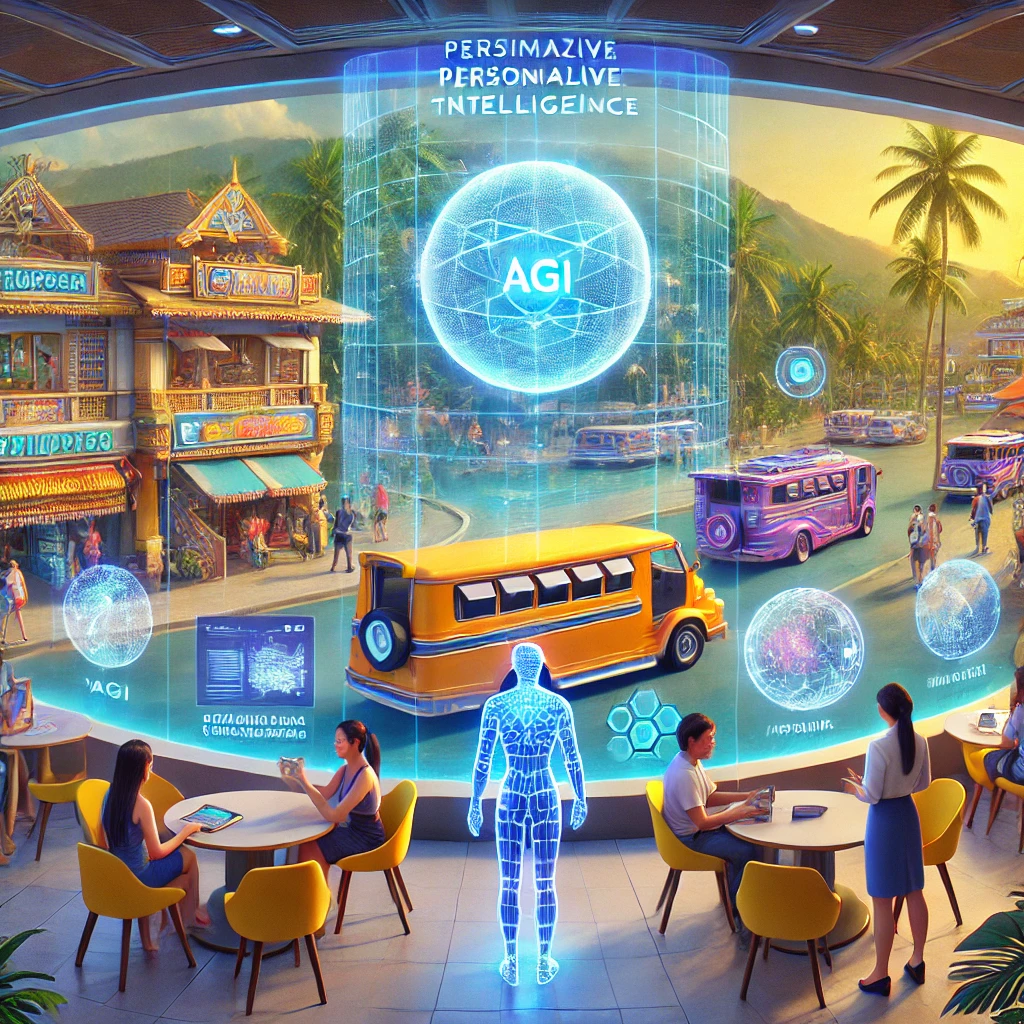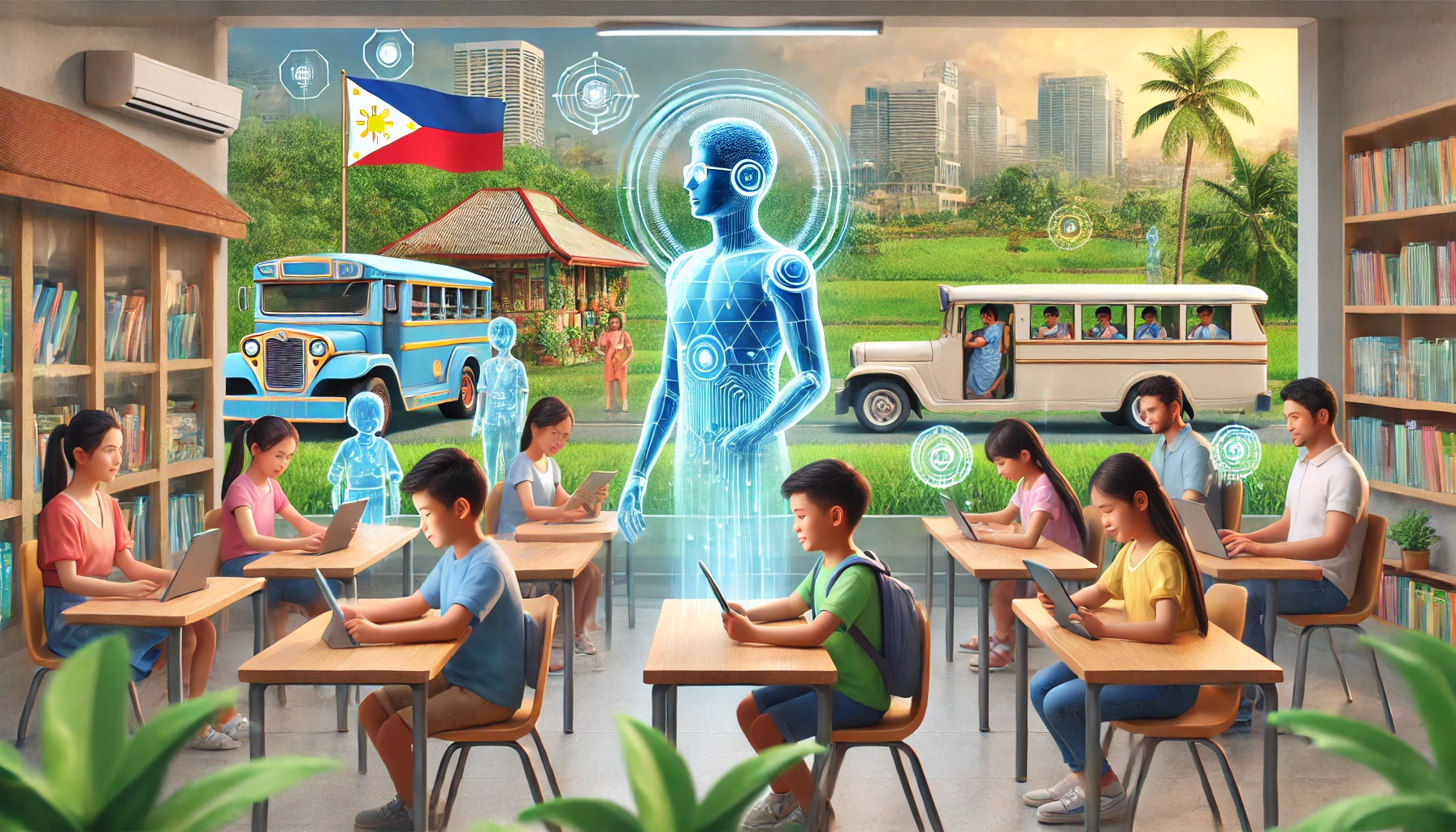The travel and tourism industry in the Philippines is a thriving sector, contributing significantly to the country’s economy. With its world-renowned beaches, vibrant festivals, and rich cultural heritage, the Philippines attracts millions of tourists annually. To remain competitive and further enhance profitability, travel and tour agencies can leverage Artificial General Intelligence (AGI), a transformative technology that goes beyond traditional AI capabilities.
Here’s how AGI can revolutionize the travel and tourism industry in the Philippines:
1. Personalized Travel Experiences
AGI can analyze vast amounts of customer data to design highly personalized travel itineraries. By understanding preferences, budgets, and travel histories, agencies can offer tailored packages that resonate with customers.
Example: A traveler interested in eco-tourism can receive a customized itinerary featuring visits to the Philippines’ top eco-destinations, such as Siargao and Palawan, complete with sustainable accommodations and activities.
Profit Potential: Personalization increases customer satisfaction, encouraging repeat bookings and positive reviews, which attract new customers.
2. Efficient Operations and Cost Reduction
AGI can automate repetitive tasks such as booking confirmations, customer inquiries, and payment processing. It can also optimize resource allocation, ensuring that transportation, accommodations, and tours run smoothly and cost-effectively.
Example: A tour agency can use AGI to predict peak tourist seasons and dynamically adjust pricing or resource allocation to maximize profits while minimizing wastage.
Profit Potential: Reduced operational costs and streamlined services result in higher margins.
3. Enhanced Customer Service Through Chatbots
Traditional AI-powered chatbots are already improving customer service, but AGI can elevate this experience by engaging in near-human-level conversations. AGI-powered virtual assistants can handle complex queries, resolve issues, and even suggest alternative plans if disruptions occur.
Example: A tourist stranded due to a canceled flight can receive real-time assistance from an AGI system that rebooks flights, arranges accommodations, and provides local support.
Profit Potential: Exceptional customer service fosters trust and loyalty, leading to long-term customer relationships.
4. Predictive Analytics for Demand Forecasting
AGI can analyze historical and real-time data to predict travel trends, helping agencies prepare for surges in demand or slow seasons. These insights can guide marketing strategies, inventory management, and promotional campaigns.
Example: An agency can launch promotions targeting international travelers during the holiday season or create packages focusing on local festivals like Sinulog and Ati-Atihan.
Profit Potential: Improved forecasting reduces the risk of overbooking or underutilization, ensuring optimal resource use.
5. Dynamic Pricing Models
AGI can implement dynamic pricing strategies that adjust rates based on factors like demand, seasonality, and competitor pricing. This ensures competitive yet profitable pricing.
Example: During peak tourist seasons, AGI can recommend price increases for premium services while offering discounts on less popular packages to fill gaps.
Profit Potential: Maximized revenue through real-time pricing adjustments.
6. Augmented Reality (AR) and Virtual Reality (VR) Integration
AGI can enhance AR and VR experiences by creating more immersive virtual tours. Potential customers can explore destinations in the Philippines virtually before making a booking decision.
Example: A traveler considering a trip to Banaue Rice Terraces can take a virtual tour, guided by AGI, to explore the site’s historical and cultural significance.
Profit Potential: Increased bookings as customers gain confidence in their travel plans through immersive previews.
7. Enhanced Marketing Campaigns
AGI can analyze market trends and consumer behavior to create highly targeted and effective marketing campaigns. This ensures that agencies reach the right audience with the right message at the right time.
Example: AGI can identify foreign markets showing increased interest in Filipino destinations and tailor campaigns to appeal to those demographics.
Profit Potential: Improved conversion rates and reduced marketing spend per customer acquisition.
8. Sustainable Tourism Management
AGI can promote sustainable tourism by analyzing environmental impact data and recommending eco-friendly practices to tour agencies. This aligns with the global trend toward responsible tourism.
Example: An AGI system can help agencies design tours that minimize environmental impact, such as recommending public transport options or eco-friendly accommodations.
Profit Potential: Attracting environmentally conscious travelers who are often willing to pay a premium for sustainable options.
Challenges and Solutions
While AGI offers immense potential, travel agencies may face challenges such as high implementation costs and resistance to change. However, these can be mitigated by:
- Starting Small: Agencies can adopt specific AGI tools for targeted applications like customer service or dynamic pricing.
- Collaboration: Partnering with tech providers to share costs and expertise.
- Training: Educating staff about AGI’s benefits and how to use it effectively.
Conclusion
The integration of Artificial General Intelligence in the travel and tourism sector can transform how agencies operate, creating more personalized, efficient, and profitable services. For agencies in the Philippines, adopting AGI is not just a trend but a necessity to stay ahead in an increasingly competitive global market. By embracing this technology, they can unlock new revenue streams while enhancing the travel experience for millions of tourists who visit the country each year.
The time to act is now—embrace AGI and elevate the Philippine tourism industry to new heights.
[SEO optimized]


